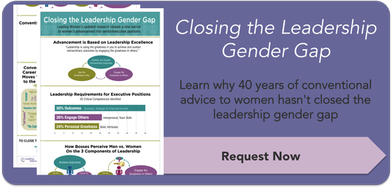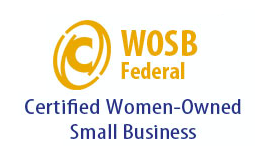 To prepare our presentation for the National Association of Women Lawyers General Counsel Institute, we interviewed GCs, CEOs and directors on corporate boards asking the question: "What are the most important selection and success criteria for General Counsels?"
To prepare our presentation for the National Association of Women Lawyers General Counsel Institute, we interviewed GCs, CEOs and directors on corporate boards asking the question: "What are the most important selection and success criteria for General Counsels?"
In all but one case the very first words out of their mouths emphasized the importance of being seen as a "partner in the business;" 50 percent answered with comments such as:
- The biggest differentiator is the person who is a business partner as opposed to a legal advisor.
- Know the business, understand the strategy and appropriate language so the executives feel that they’re talking with a peer, not an outsider.
- Understand the business, be a problem-solver, not a nay-sayer.
- Understand the business, where it needs to go and what it takes to move the business forward.
- Be a business-thinking lawyer, approach everything with a business lens.
- You can do technical work well and stay employed as a legal specialist, but if you’re not going to take the next step of becoming a business partner, you’ll never advance.
Do the answers above surprise you? We have to admit, they surprised us. Men and women who are partners in law firms have since told me the same.
Having discovered The Missing 33%® of the career success equation for women, these answers shouldn’t have surprised me, but we weren’t sure the pattern would hold true in law.
THE MISSING 33%®
/(R)%20Missing%2033_-type%20treatment-Vert.png?width=301&height=237&name=(R)%20Missing%2033_-type%20treatment-Vert.png) In summary, The Missing 33%® of the career success equation for women is the knowledge and advice that to get to the top of organizations, women need to develop and demonstrate business, strategic and financial acumen. (For a more complete definition, go to watch Susan's TED Talk: The career advice you probably didn't get)
In summary, The Missing 33%® of the career success equation for women is the knowledge and advice that to get to the top of organizations, women need to develop and demonstrate business, strategic and financial acumen. (For a more complete definition, go to watch Susan's TED Talk: The career advice you probably didn't get)
Unfortunately, 14 years of studies indicate that this is not an area that is seen by managers and executives as a strength for women. Instead, women are noted for our ability to “engage the greatness in others” through strong interpersonal and team skills.
Does this mean that all women are good at engaging others? Obviously not. But it does mean that women benefit from the positive expectation that we will be good at building teams, using shared decision-making, working on diverse teams and other leadership behaviors requiring interpersonal and team skills.
Does the pattern indicate that no women have and / or demonstrate business, strategic and financial acumen? Again, obviously not. But, it does mean that we aren’t expected to. As a result, women have to work extra hard to demonstrate that we do understand the overall business of the firm, it’s strategy, the story told by the financials and that we make decisions and/or recommendations based on these understandings.
TAKING THE LEAD
When you hold a senior position in a law firm or within a corporation, you are paid to be a leader of the business. To understand what this means, consider Leading Women’s definition of leadership: “Leadership is using the greatness in you to achieve and sustain extraordinary outcomes by engaging the greatness in others.”
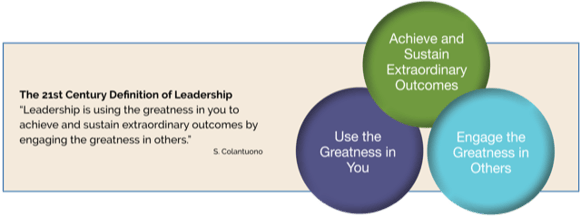
This three-part definition focuses attention on the importance of using your skills, knowledge and experience (greatness in you) to enable the firm to meet or exceed its strategic goals (achieve and sustain extraordinary outcomes) by working effectively with clients, colleagues and other stakeholders (engaging the greatness in others).
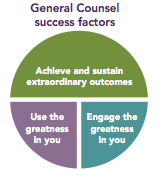 The advice we heard in our interviews arrayed across the three parts in the proportions illustrated in the graphic right.
The advice we heard in our interviews arrayed across the three parts in the proportions illustrated in the graphic right.
This is exactly the same proportion as the earlier image depicting what’s required to get to the top in business1.
This matters to you because research tells us that decades of advice to women (including attorneys) have focused on everything but the importance of being seen as a business partner.
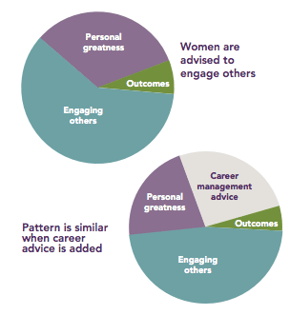
We used our three-part model of leadership to analyze the Top 10 most substantive Google returns for the search “career advice for women lawyers.” We added a fourth category for career advice in general (such as “take a lateral move to another firm”). see image left
What we discovered is that the advice women attorneys are given is disproportionately weighted with advice relating to “engaging others.” Even when including general career management advice, the pattern continues.
BECOME A ‘PARTNER IN THE BUSINESS’
With advice like this, it’s not surprising that women in the law (as with women in many professions) don’t understand that, at some point, they have to make an identity shift. They must give up their identity as a polished professional attorney and take on the identity of a businesswoman. Making this transition can be hard. First, because you have invested so much into becoming an attorney and know what it takes to perform as a master in your area of law, and second, because you likely haven’t been told that you have to make the transition. But make the transition, you must! Our interviews demonstrated why with comments such as:
- If you think of yourself as a lawyer, you’re never going to make GC. Being a great lawyer is only a starting point.
- Women tend to cling to the identity of a lawyer rather than embrace the identity of a businesswoman.
- You need to understand business objectives and speak the language. If you can’t, you’re an outsider. If you can, you’re the person on the inside trying to help them on the right path. You’re part of the journey, not an obstacle.
- Think strategically; it’s usually not a lawyer thing
What can you do to facilitate this identity transition?
Depending on your level in the firm, here is advice shared by attorneys at the top:
- Volunteer on projects e.g. risk management.
- Volunteer for/take assignments outside the legal department and/or your area of specialty.
- Go on client visits.
- Ask to sit in on budget meetings.
- Attend executive off-sites, board meetings.
- Help prepare materials for board meetings, sit on audit or governance committees, present to the board.
- Swap legal assignments to gain exposure to other parts of the business.
- Get on cross-functional committees.
- Observe the way the partners work with clients, each other, the board and their teams. Look for businessmen/women behaviors and language.
- Never say, “I don’t know that area of the law.”
- Get on a substantial, well-run nonprofit board.
So, put aside conventional advice offered to women and take to heart the advice of attorneys at the top. To become a partner in the firm, you have to become a partner in the business.
Have you successfully made the transition from the identity of an attorney to business leader? Tell us how. Are you finding it difficult? Tell us why.

1. If you’re wondering what other advice they gave: 25 percent addressed engaging others, for example:
- “Map out the ecosystem, you have to understand where you are in it and read it accurately.”
- “Have excellent communication skills.”
Another 25 percent discussed personal greatness, for example:
- “Project a confident presence.”
First Published:
Colantuono, Susan L. (2017). 'A partner by any other name: Insights from the top on how to get there.' Women Lawyers Journal, vol. 102 (2).
Retrieved from
http://www.nawl.org/d/do/627

